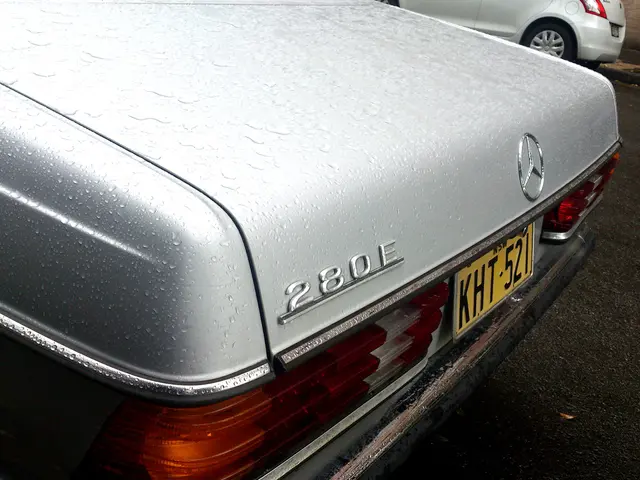Bremerhaven braces for potential drops in automobile sales due to Volkswagen's new strategies
VW's Shift to Venice: What Does It Mean for Bremerhaven?
In a surprising twist, Volkswagen (VW) is planning to transport part of its cars via the Venice port starting October. While this move could lead to cheaper costs and shorter routes, it leaves uncertainty about the future of the Bremerhaven port.
VW's Reason for the Shift
Citing financial benefits, VW plans to send cars from its southern Germany and Eastern European plants, like the Bratislava plant, through Venice's Porto Marghera port. The cars will then be transported by train to Asia and Turkey, potentially reducing transportation costs by 20%. A map reveals that shipping via the Venice route is significantly shorter than the current one through Northern Europe.
The Impact on Ports Like Bremerhaven
The BLG logistics group, which handles 1.3 million cars a year through Bremerhaven, anticipates changes but has no clarity on the number of vehicles affected. VW is cryptic about the potential losses for Bremerhaven.
VW's Stance on the Matter
A VW spokesperson acknowledges a possible reduction in cars shipped through Bremerhaven but assures that it will still use Bremerhaven, Emden, and other North German ports. Emden is VW's main port, where the company also holds a significant stake. The spokesperson also notes that cars from the Wolfsburg plant won't travel to Italy due to the extended journey.
The Effect on Bremerhaven's Car Terminal
With a workforce of 1,500, any loss to the port is concerning. The terminal has been battling for years, exposed to declining numbers. In 2024, 1.3 million cars were processed, but in 2019, it managed 2.1 million. Post-pandemic, the terminal suffered substantial losses and was labeled a "problem child" within the BLG group in 2023. Restructuring, staff agreements for lesser pay, and a job security contract followed. The terminal reported no loss last year but experienced a decrease in throughput.
The Future for BLG Logistics Company
The shift to Venice could trigger various impacts:
- Redistributing Traffic: Bremerhaven might experience a decrease in vehicle traffic, leading to fewer income streams.
- Increased Competition: The rise of a new terminal in Venice creates tougher competition among European ports, making it challenging for Bremerhaven to maintain its market dominance.
- Economic Adjustments: Changes in shipping volumes could necessitate economic adjustments in Bremerhaven, affecting local businesses and logistics services relying on VW's exports.
On a brighter note, this shift may also open opportunities for Bremerhaven to diversify services, adapt to handle different types of cargo, and attract new clients. Although jobs might be at risk due to reduced volumes, increased efficiency in sustainable logistics could create new jobs.
[1] Port of Venice: https://veniceport.com/[2] BLG Logistics: https://www.blg-logistics.com/[3] Bremerhaven: https://www.bremerhaven.de/[4] Volkswagen: https://www.volkswagenag.com/[5] Sustainable Logistics: https://www.iea.org/topics/sustainable-transport
- The shift of Volkswagen's car transportation through the Venice port could lead to redistributed traffic, potentially reducing income streams for ports like Bremerhaven.
- The rise of a new terminal in Venice, with VW's decision to send cars from southern Germany and Eastern Europe through Porto Marghera, creates tougher competition among European ports, making it challenging for Bremerhaven to maintain its market dominance.








